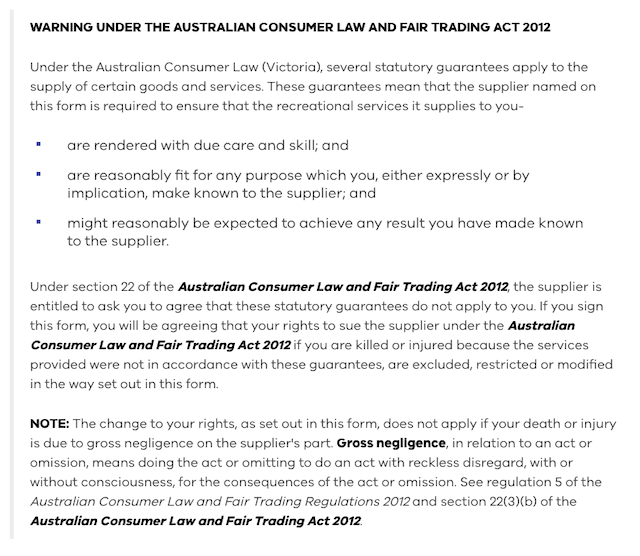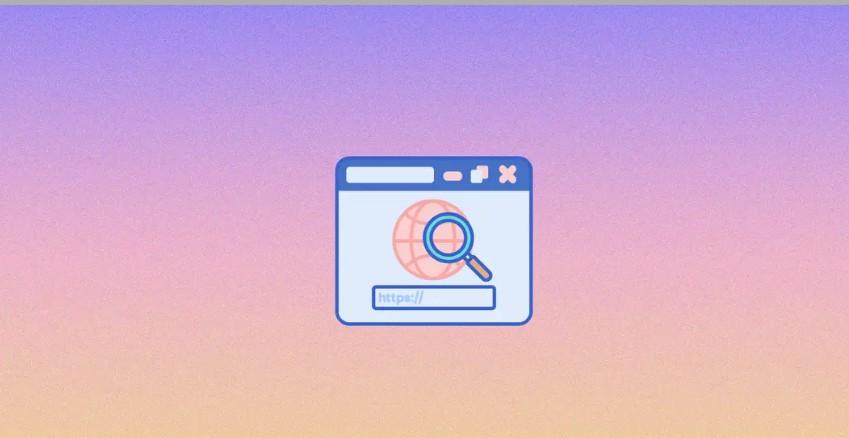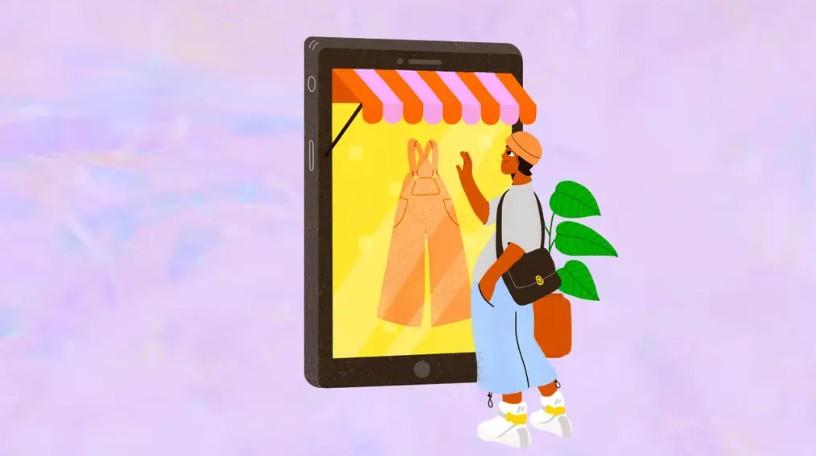As people struggle to come to terms with the ‘new normal,’ some business owners are asking customers to sign a liability waiver. By signing, they give up their right to legal action if they contract COVID-19 after dealing with the business.
While Australians aren't known for being litigious, it's important to weigh the legal risks of engaging with customers and employees.
Otherwise, you could be leaving yourself open to considerable risk — the kind that could even put you out of business.
Related: How to get the word out that your small business is open again
What is a liability waiver?
A liability waiver is a legal document — basically an agreement between the business and the customer. It protects the business by:
- Notifying the customer of potential risks of interacting with the business or taking part in its activities
- Asks the customer to accept responsibility for these risks and exempt the business from legal liability
A waiver protects your business from lawsuits in the event of injury, death, loss or damage.
A common practice for recreational businesses
Signing a liability waiver is already standard practice in some sectors, especially if they involve physical activity with a risk of injury such as a gymnasium or rock-climbing centre.
Sometimes they're known as:
- Release forms
- Indemnity agreements
- Hold harmless agreements
Such waivers are often incorporated into the initial paperwork when a new customer signs up.
Good record-keeping is essential

Even if your liability waiver only covers a one-off event, such as a single rock-climbing session, you should not throw away the form as soon as they walk out the door.
It's possible that injuries could arise later that can be traced back to this event. So it's best to keep all of your signed liability waivers indefinitely.
State and federal laws vary but, according to Consumer Affairs Victoria, a sample waiver form for a recreational business should include the following:

If you're not sure whether your business should be asking customers or employees to sign a liability waiver, it's worth getting legal advice. You might also consult your industry body to see what is considered best practice in your sector and check what is covered by your business liability insurance.
Editor’s note: Still don't have a website? Share complete details about your business with your customers via Websites + Marketing. Fast, easy, free.
What doesn't a liability waiver cover?
The area of law that governs the signing of waivers is not straightforward. There are many considerations to take into account, including state and federal consumer laws and liability acts.
It's possible that someone could make a claim even if they have signed your waiver.
Liability waivers offer some protection, but they are not a magic bullet. The laws vary by jurisdiction and the validity of your waiver is open to interpretation by the courts.
As a rule of thumb, a liability waiver will likely not protect your business from legal action if it can be shown that you:
- Acted negligently
- Failed to meet your duty of care
- Didn't take reasonable precautions to ensure safety, such as properly maintaining equipment and training staff
Liability waivers can also be overruled if they are poorly-worded or overly confusing, on the grounds that the claimant did not understand what they were signing. This is why it's worth getting a legal opinion on the validity of your waiver.
People must be made aware of and agree to any waiver clauses, with extra effort made to ensure they understand unique or especially dangerous risks.
Do you need a COVID-19 liability waiver?
Your business might need to reevaluate your liability waiver, or introduce one for the first time, in light of the COVID-19 pandemic.
Some businesses are asking customers and employees to sign waivers to say they won’t sue if they catch COVID-19 while interacting with the business.

So it might be time to think about a waiver form if you're reopening.
Of course if you're interacting with customers and employees, then you should be taking precautions such as:
- Social distancing
- Regular hand-washing
- Possibly using gloves and masks
But there is still a risk, especially if your business tends to involve prolonged interaction at close proximity. This increases the risk of passing along the virus.
In Australia, employers could be held liable for workers who contract COVID-19 on the job, according to Maurice Blackburn principal lawyer Liberty Sanger.
Even in a pandemic, employers must provide a safe workplace, says Ms. Sanger. If they ignore hygiene and social distancing guidelines, they could be sued by employees who suffer long-term impacts.
"If they [the worker] have serious permanent consequences from that, and the employer has been negligent by not observing these readily accessible guidelines, then the worker will be able to look at a common law claim, Ms. Sanger said.
"It would be very hard for an employer to say they had no idea [about the guidelines]. In fact, it would be impossible."
Meanwhile, Slater and Gordon principal lawyer Neil Andrews said there would likely be more WorkCover claims. Workers would be entitled to weekly payments to cover medical and other expenses if they, on the balance of probabilities, caught COVID-19 at work. A lawsuit requires both proving negligence, he said, and long-term permanent impairment.
New world, new risks
The risk of catching COVID-19 is not the only risk to consider. Due to social distancing and other restrictions, it is possible that you might be encouraging your customers and employees to do things differently.
If you own a gym, your fitness instructors may now be working with customers over Skype.
If this is the case then you might need to consider a new liability waiver to cover this situation, especially if customers or employees are using specialist equipment at home which could potentially cause injury. Better safe than sorry.
This should not be construed as legal advice. Consult an attorney before using a liability waiver for your business.






